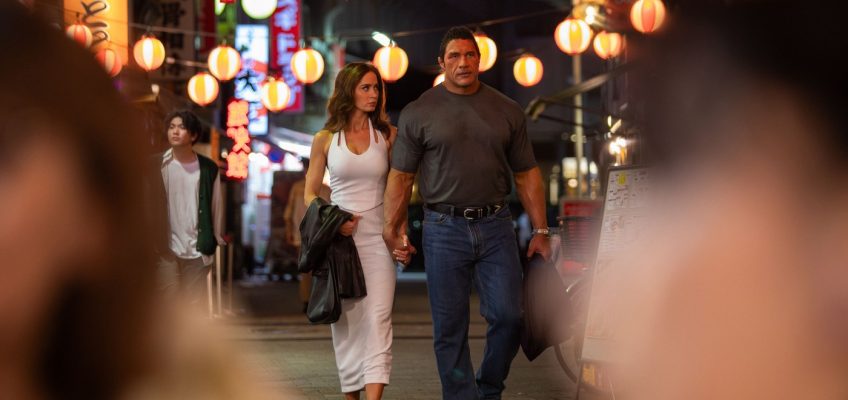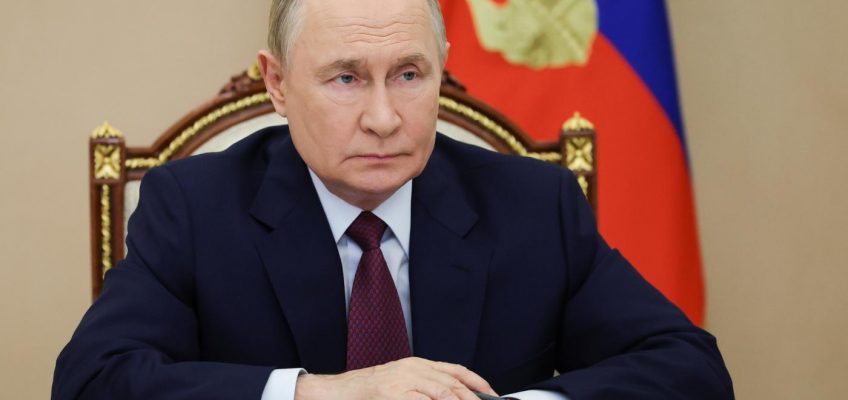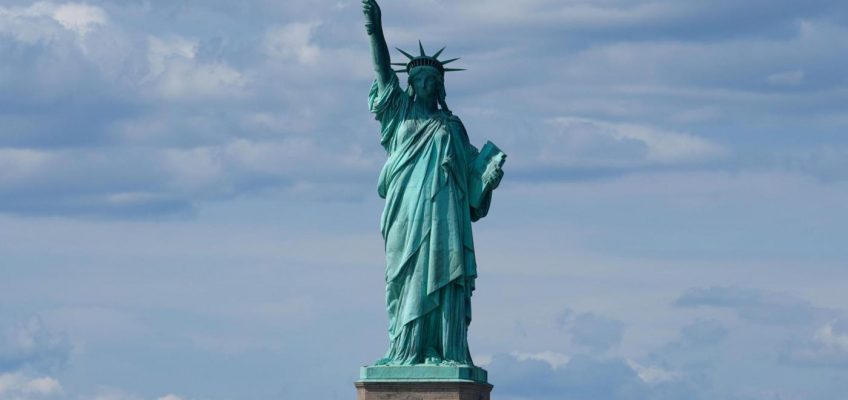Benny Safdie wants to challenge our expectations of the traditional sports movie. His first solo directorial outing without his brother Josh, “The Smashing Machine” is a biopic that zigs when you expect it to zag, parries rather than jabs, feints before delivering a punch.
“The Smashing Machine,” about mixed martial arts fighter and UFC heavyweight champion Mark Kerr, played by an almost unrecognizable Dwayne Johnson, takes a shape and form that is not what we’re used to in traditional sports movies. It’s more like a jazzy improvisation on the formula that references familiar rhythms but marches entirely to the beat of its own drum, and it’s the kind of film that forces the audience to wrestle with what, exactly, we want to see from these kinds of narratives — tragedy or triumph? Safdie offers both, and neither.
Based on a 2002 documentary directed by John Hyams, Safdie’s “The Smashing Machine,” which he produced, wrote, directed and edited, mimics the documentary-style approach. Working with cinematographer Maceo Bishop, Safdie utilizes a variety of film formats from VHS to 16mm to 35mm to capture Kerr’s roller-coaster ride through the nascent world of professional MMA fighting in the late 1990s.
Mark’s soft-spoken interviews layered over his bloody brutality in the ring during a fighting tournament in Brazil is our introduction to the study in contrasts that animates the film. This is a portrait of a mostly good-natured gentle giant whose job is inflicting — and enduring — violence, but who speaks sweetly to older women in the doctor’s office, and to the medical receptionists who help to fill his prescriptions for increasingly potent pain medication. Mark can headbutt an opponent without a second thought but cannot easily communicate his needs to his spitfire girlfriend Dawn (Emily Blunt) for fear of hurting her feelings.
Mark and Dawn are opposites trying to make it work: she’s a bit of a wanton thrill-seeker who wants to feel like the most important person in his life, he’s a perfectionist and a bit of a fuddy-duddy. “My tummy,” he whines about a carnival ride. The savagery of Mark’s professional fights pale in comparison to the emotional warfare he and Dawn inflict on each other, often in hushed tones. When their resentments crescendo into an operatic climax, it’s far more harrowing anything he experiences in the octagon.
Blunt and Johnson first co-starred in “Jungle Cruise,” and are close friends, and the two share a palpable chemistry in moments of both love and conflict. But there’s never any question that Mark and Dawn are a match made in hell, their dysfunction doing battle with their clear affection for each other.
Mark thrives in the regulated space of training and fighting, following the rules even when others break them. Johnson’s performance isn’t just transformed in voice and manner, but is one of carefully calibrated control, as if Mark’s making himself smaller, quieter to appear less intimidating. Moments of explosive violence and emotion do erupt out of him, especially when he’s struggling with his opiate addiction.
Mark overcomes that particular hurdle rather quickly, thanks in part to the one healthy relationship he has, with friend, trainer and competitor Mark Coleman (played by pro MMA fighter Ryan Bader). There’s never an ounce of bad blood between the genial Kerr and Coleman, even when you’re expecting rivalry, as the two prepare to potentially face-off in the PRIDE Fighting Championships 2000 Grand Prix in Japan. Instead, the friends are simply happy to be together. Bader, while a bit limited in his range, is nevertheless a fascinating screen presence as the steady Coleman, capably undertaking a meaty role and making the character interesting enough that you wish there were far more of him in the picture.
Safdie offers up an unusual and appealingly weird sports biopic that is tastefully crafted and impeccably directed, anchored by Johnson and Blunt’s powerhouse performances, Bishop’s textured cinematography and Nala Sinephor’s loose, abstract, jazz-inspired score that echoes the film’s themes, juxtaposing hard and soft. But Safdie’s script is at times formless and somewhat baggy. It’s a bit hard to track the emotional journey when the beats feel like they hit in the wrong place and time.
It becomes clear that Safdie is intentionally denying a big, flashy “win the game” kind of film, offering instead a cerebral examination of the quotidian, workmanlike drudgery of being a professional athlete who never became a superstar household name, still shouldering the work, the struggle, the bad days, quibbling over contracts and rules, taking every hit without complaint. “A day without pain is like a day without sunshine,” Mark quips, and if there are any major revelations to take away from “The Smashing Machine,” it’s that Mark Kerr seems like a truly nice guy, one who had all the guts, and not enough glory.
‘The Smashing Machine’
3 stars (out of 4)
MPA rating: R (for language and some drug abuse)
Running time: 2:03
How to watch: In theaters on Friday, Oct. 3.
Related Articles
Movie review: Horror thriller ‘Bone Lake’ stranded in the shallows
‘Steve’ review: Cillian Murphy impresses in uneven kinetic drama
Why many young adults turn on TV or movie subtitles, according to a new poll
Trump takes his tariff war to the movies announcing 100% levies on foreign-made films
‘Dead of Winter’ review: Harsh environment helps elevate kidnapping drama




